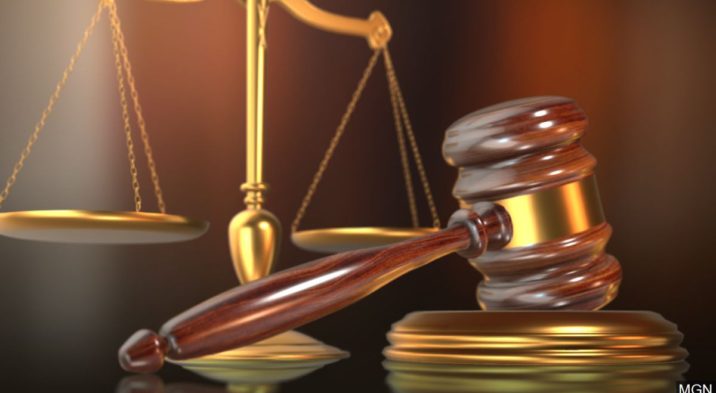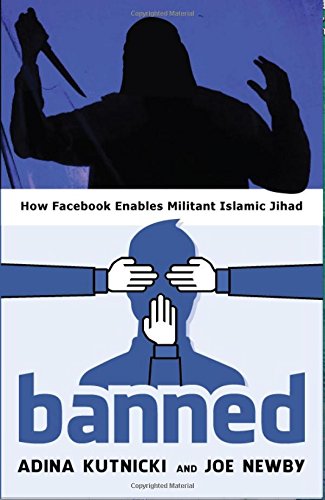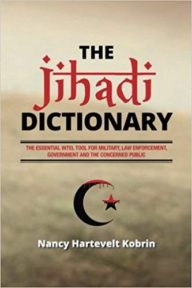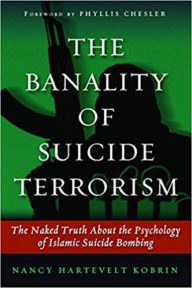
Georgia and Michigan Federal Courts Dismiss Sidney Powell Election Lawsuits
By William A. Jacobson | Legal Insurrection | Monday, December 7, 2020 at 4:00pm
In each case the dismissal was based on jurisdiction and pleading standards, but the judges issued dramatic made-for-media declarations such as “The People have spoken” (Michigan) and “They want this court to substitute its judgment for the 2.5 million voters who voted for Biden” (Georgia).
Sidney Powell filed two federal court lawsuits, the so-called Kraken, in Michigan and Georgia. We covered the filing, Sidney Powell Releases “The Kraken” in Georgia and Michigan Federal Lawsuits.
Both lawsuits were dismissed today. In each case, the judges issued dramatic soundbites made for media quotation — a now all-too-common federal practice that predates the election disputes. We saw similar drama in the various travel and immigrations cases, where district courts acted like they were auditioning for cable news.
The Judge in Georgia has not released a written opinion yet, but according to reports of the hearing, ruled that the federal court had no jurisiction in the case:
U.S. District Judge Timothy Batten dismissed the lawsuit, which was bought by former Trump attorney Sidney Powell in an attempt to decertify Georgia’s election.
“They want this court to substitute its judgment for the 2.5 million voters who voted for Biden,” Batten said in court in Atlanta. “This I’m unwilling to do.” ….
Batten dismissed the case based on similar reasoning as the 11th U.S. Circuit Court of Appeals, which decided Saturday that a Trump supporter, L. Lin Wood, lacked standing to sue, and that federal courts have limited jurisdiction in cases contesting election results. Those kinds of cases should be filed in state courts, Batten said.
So it was dismissed on jurisdictional grounds. The dramatic statements were gratuitous. A formal opinion will issue, so expect more quotable language.
In Michigan, the court issued similarly dramatic statements in a 36-page Opinion:
The right to vote is among the most sacred rights of our democracy and, in turn, uniquely defines us as Americans. The struggle to achieve the right to vote is one that has been both hard fought and cherished throughout our country’s history.
Local, state, and federal elections give voice to this right through the ballot. And elections that count each vote celebrate and secure this cherished right. These principles are the bedrock of American democracy and are widely revered as being woven into the fabric of this country. In Michigan, more than 5.5 million citizens exercised the franchise either in person or by absentee ballot during the 2020 General Election. Those votes were counted and, as of November 23, 2020, certified by the Michigan Board of State Canvassers (also “State Board”). The Governor has sent the slate of Presidential Electors to the Archivist of the United States to confirm the votes for the successful candidate.
Against this backdrop, Plaintiffs filed this lawsuit, bringing forth claims of widespread voter irregularities and fraud in the processing and tabulation of votes and absentee ballots. They seek relief that is stunning in its scope and breathtaking in its reach. If granted, the relief would disenfranchise the votes of the more than 5.5 million Michigan citizens who, with dignity, hope, and a promise of a voice, participated in the 2020 General Election. The Court declines to grant Plaintiffs this relief.
* * *
For these reasons, the Court finds that Plaintiffs are far from likely to succeed in this matter. In fact, this lawsuit seems to be less about achieving the relief Plaintiffs seek—as much of that relief is beyond the power of this Court— and more about the impact of their allegations on People’s faith in the democratic process and their trust in our government. Plaintiffs ask this Court to ignore the orderly statutory scheme established to challenge elections and to ignore the will of millions of voters. This, the Court cannot, and will not, do.
The People have spoken.
How dramatic! Fits so nicely in a tweet.
But the basis for the ruling was more mundane, that the federal court could not order a state election result change under the doctrine of sovereign immunity: “For these reasons, the Court concludes that the Eleventh Amendment bars Plaintiffs’ claims against Defendants”; the case was moot because certification was complete so there was nothing to enjoin, and plaintiffs failed to use state procedures to challenge the certification; “laches,” the plaintiffs waited too long and could have brought the lawsuit prior to certification; and lack of “standing” to sue. Because the plaintiffs could not show a likelihood of succeeding because of these legal problems, the request for a preliminary injunction was denied.
Beyond that, the judge volunteered (it was unnecessary) that the plaintiffs had no substantive case:
The closest Plaintiffs get to alleging that election machines and software changed votes for President Trump to Vice President Biden in Wayne County is an amalgamation of theories, conjecture, and speculation that such alterations were possible….
With nothing but speculation and conjecture that votes for President Trump were destroyed, discarded or switched to votes for Vice President Biden, Plaintiffs’ equal protection claim fails.1″
That’s a legitimate criticism, similar to my evaluation:
What is lacking is the who/what/when/where that would show (1) a clearly identifiable group of ballots for Biden that were unlawfully counted, or for Trump that were not counted, as opposed to some unspecified number anecdotally demonstrated through affidavits, and (2) the software actually was manipulated in this instance, as opposed to being vulnerable to manipulation.
This problem highlights the overarching problem that the courts want challengers to come into court with all the evidence buttoned-up, but much of the evidence is in the hands of the states, not the plaintiffs. In a normal lawsuit there would be discovery and evidence gathering. But on the quick timeline of the presidential election process, courts are not going to permit it.







